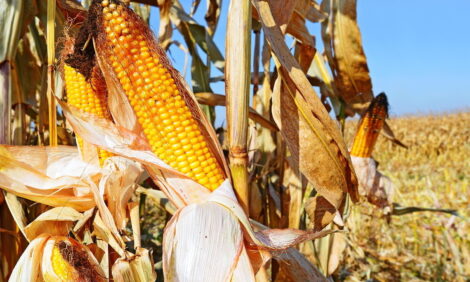



Could JBS Buy into New Zealand Meat Sector?
NEW ZEALAND - The New Zealand red meat processing industry could be vulnerable to takeovers from global giants such as JBS, writes Chris Harris.According to a new report from Federated Farmers in New Zealand, while the meat processing sector is a key contributor to the New Zealand economy and has progressed considerably since the 1980s, it is still fragmented.
The structure and behaviour of participants in the industry has allowed for competition at multiple levels of the supply chain and a lack of investment along the whole value chain.
Processing overcapacity is another issue which continues to plague the industry, the report says.
It adds that while New Zealand is internationally regarded for producing consistent, high quality meat, with a large proportion of meat being sold using business to business branding rather than consumer branding, this limits the ability to attract a premium for the product.
The report looks at three options to refocus the way the red meat sector is structured in New Zealand – either through a behaviour focus, processor focus or a marketing focus.
In looking at the behaviours of the meat industry, Federated Farmers say that if producers were to communicate with processing companies and commit supply, so that processing companies had a reasonable indication of the volumes and timing of livestock, this could help shift the focus of the processing company.
It would allow processing companies to shift some of their energy and investment that is currently going into securing procurement towards market development, and securing markets and higher prices for those committed suppliers.
A market focus will also be assisted by producers understanding and engaging with the end market.
The report says that in the past moves had been made for a merger between the two leading processing cooperatives in the country – Silver Fern Foods and Alliance Group.
A merger would create one farmer owned cooperative with 52.7 per cent of the sheep meat and 39 per cent of the beef market share.
This could help to reduce farm gate competition for lambs, rationalise capacity and create a united front for international exporting and marketing.
“If a merger to were to succeed and grow to the point that the cooperative controlled close to 80 per cent of the meat industry, as is the case in the Dairy industry, then legislation would likely play an important role,” the report says.
“The Commerce Act 1986 would be relevant, as gathering that level of market share would result in reduced competition.
“For meat sold domestically reduced competition for retail meat would be of great interest to the Commerce Commission and politicians, just as fresh milk has been.
“Having a monopoly buyer could also restrict competition in terms of supply with the potential unintended consequence to reduce the farm gate price. Legislation surrounding how the price is set would be an important element in avoiding these issues.”
The report says that an option for Tradable Processing Rights (TPR), which was initially proposed in 1985 to the Meat Industry Council, would see tradable rights allocated based on the processors current market share, using a similar process to that used by the Meat Board to allocate the EU quota.
Once the allocation was completed this would act as a quota for the volume of meat a company was able to process in a season.
If a company wanted to process more than its allocated share they would have to purchase processing rights from another company.
Another option would be to introduce toll processing, where a company with specialised equipment processes raw material for another company.
This allows companies to specialise in what they are good at and focus on their core business.
The goal for toll processing in the meat industry would be to separate processing and marketing to allow each party to focus on executing their role
However, the report warns that if one of the major processing companies goes into liquidation, the assets would become available for sale and while it might be an opportunity to address overcapacity, the remaining industry players to cherry pick those assets which would add value to their business.
Another and perhaps more likely option would be for an overseas buyer to come in as the receiver tries to secure the highest possible price, giving them a significant foothold in the NZ red meat industry.
Federated Farmers believes that the leading global meat processor, JBS, could be the most likely company to step in, given its acquisitive nature and the way that it has become a major player in neighbouring Australia.
“JBS have successfully entered the US and Australian markets and become big players. What is stopping them from doing the same in NZ?” the report says.
“They could bring with them the economies of scale and efficiencies, as well as the institutional knowledge and customers they have developed from their role as the world’s largest meat company and their operations in Brazil, the USA, and Australia.
“At least one of our major NZ meat processor/exporters has a strategy very closely aligned to the one JBS is currently rolling out in Australia.
“Wouldn’t a big NZ sheep meat processor be a tidy acquisition for a company with deep pockets and a strategy to reaffirm its global presence in the main meat producing countries?
The final option that Federated Farmers has thrown into the discussion is to have all New Zealand red meat sold through a single desk seller to eliminate price positioning between NZ companies in international markets.
“It would also provide critical mass which assists in developing leverage and bargaining power in market,” Federated Farmers say.



